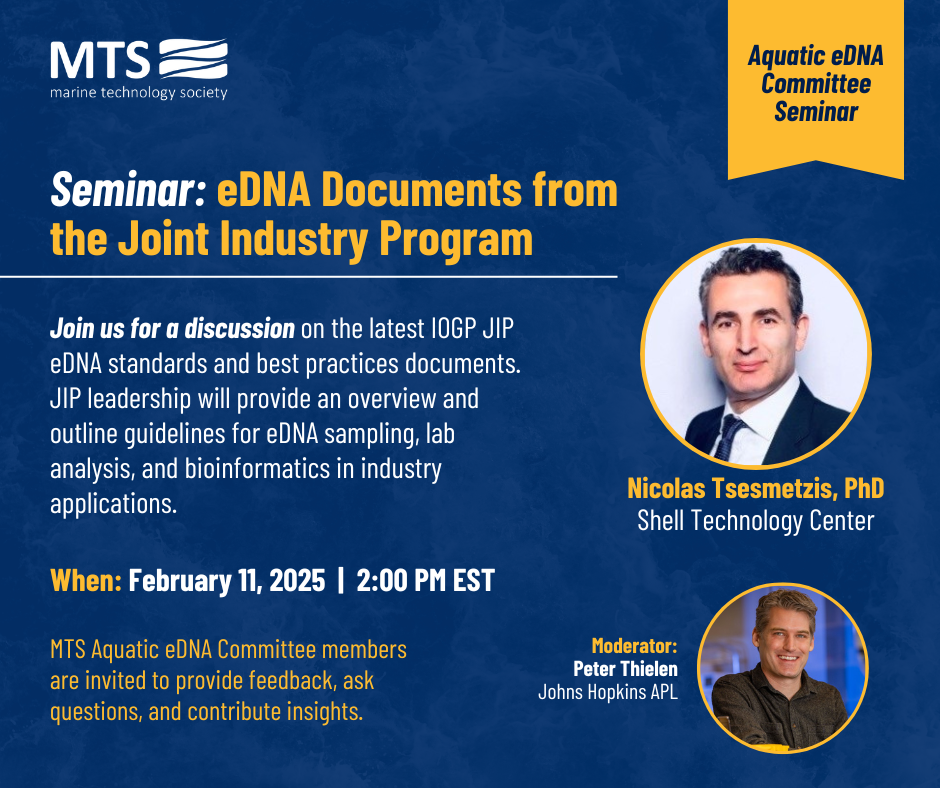|
Seminar on eDNA Documents from the Joint Industry Program
Tuesday, February 11, 2025, 2:00 PM - 3:00 PM EDT
Category: Virtual Event
Seminar on eDNA Documents from the Joint Industry ProgramDate: Feb. 11, 2025 Join us for a discussion on the latest IOGP Joint Industry Program (JIP) eDNA standards and best practices documents. Nicolas Tsesmetzis, Industry Co-Chair of JIP, will provide an overview these key publications that outline guidelines for eDNA sampling, lab analysis, and bioinformatics in industry applications. MTS Aquatic eDNA Committee members are invited to provide feedback, ask questions, and contribute insights. Reserve your spot. PresenterNicolas Tsesmetzis, PhD, Shell Technology Center, Co-Chair Joint Industry Program
Dr. Nicolas Tsesmetzis is a Principal Scientist in Shell’s BioTechnology group with a background in molecular biology and metagenomics. He is an expert in environmental microbiology, with over 16 years of experience in biofuels, renewables, and nature-based solutions. Nicolas holds a PhD in Cell and Developmental Biology and an MSc in Plant Biotechnology. He has published several research articles and book chapters. Nicolas was a Visiting Professor at Newcastle University and is part of the ISMOS conference’s Technical Scientific Committee and Co-chair of the IOGP-JIP34 on Environmental Genomics. His research employs advanced DNA/RNA technologies and computational methods to analyze (meta)genomic data from environmental and industrial processes.
ModeratorPeter Thielen, Johns Hopkins University Dr. Peter Thielen is a senior staff scientist with a background in molecular biology and genomics. His research focuses on advancing DNA and RNA sequencing to support rapid decision-making, including in the clinical, environmental, and national security domains. He currently leads multiple programs that focus on transitioning basic research approaches to operational environments, including viral genomic surveillance (e.g., influenza virus, SARS-CoV-2), characterization of genetically modified plant species, and the use of aquatic environmental DNA for ecological species monitoring. Reserve your spot >>
|


 Prev Month
Prev Month View Month
View Month Search
Search Go to Month
Go to Month Next Month
Next Month
 Export Event
Export Event